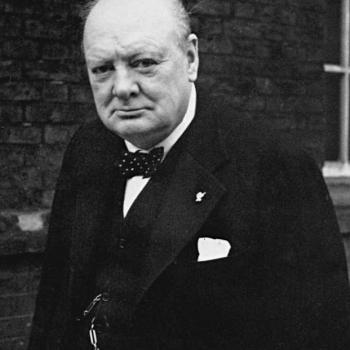 My colleague and now Department Chair, Sven Wilson, recently (10/23) delivered the annual Virginia F. Cutler Lecture at BYU, hosted by BYU’s School of Family Life. The auditorium was full (200+), and those who attended were well rewarded by a thoughtful, well-researched and in many ways brave lecture on “Love, Marriage and the Public Health.”
My colleague and now Department Chair, Sven Wilson, recently (10/23) delivered the annual Virginia F. Cutler Lecture at BYU, hosted by BYU’s School of Family Life. The auditorium was full (200+), and those who attended were well rewarded by a thoughtful, well-researched and in many ways brave lecture on “Love, Marriage and the Public Health.”
After setting forth (for us non-economists) some basic principles concerning human capital and economic growth, Wilson proposed looking at the household as the key producer of human capital: “the foundation of human capital development is in the family.” Then, just when I had begun to worry that he might reduce “human capital” to some measurable material benefits, Wilson introduced a wrinkle in the argument that in my view took it to another plane:
You might be thinking that the really important things about family are outside this economic framework that I’m talking about—things like love, commitment, honor, respect, devotion, romance, fidelity, and sacrifice, to name a few. I don’t agree. Indeed, those are the very things that differentiate family capital from individual human capital.
Wilson then reviewed an impressive mound of evidence of the positive relation between this family capital and a measurable good such as health. Indeed, the evidence of the value of family capital in many domains would suggest that “marriage-based family capital [should be] rising and marriage become stronger and more prevalent.”
But of course this is not the case. In fact, marital failure is increasingly prevalent, with many grave consequences for individuals and society. But unlike issues such as smoking and obesity, we do not regard marital failure as a “disease” to be addressed as a public health concern.
I would classify marital failure (in which I would include failure to marry, low quality marriage and divorce) as a disease itself. Does it not inflict pain and anguish? Is it not emotionally and socially disabling? As fundamentally social creatures with physical and emotional needs for intimacy, does not marital failure strike at the core of our well-being as human beings?
Now there’s a big question for us. If marital failure strikes at the core of our well-being, then why can’t we treat it as a public health concern?
My provisional response: it is precisely because it strikes at the core of our well-being that we cannot treat it as a public concern. We are a liberal democracy — an increasingly liberal democracy — and the whole point of liberalism is to remove the core of our well-being from the public sphere.
In fact, without using the word “liberalism,” Prof. Wilson points to cultural and ideological factors that economists, in my experience, generally prefer to ignore, or let us say to “bracket”:
The question what causes marital failure is too big a question for tonight, but let me reiterate that I don’t think the primary factors that have caused the disease to spread are economic, for reasons I’ve argued. I do note that for many decades a dedicated group of people has been aggressively preaching an anti-marriage agenda, in which marriage is described as oppressive and limiting, especially for women.
This effort is a part of a larger set of teachings that I would call the gospel of self-indulgence. In this new gospel, traditional social and economic institutions and, especially, behavioral norms related to sexuality, are the enemies of self-fulfillment. I’m just hinting here at a lot of different things, but I would argue that the enemies of marriage are real, powerful, and highly prevalent.
To this I can only say: “Amen, brother!” And “All hail to the alliance between family economists and political philosophers!”
(I am skipping much of great interest; the lecture will eventually published, and readers will see that Wilson packed a lot into his hour.)
Sven Wilson concludes by quoting our friend at the Ruth Institute, Jennifer Roback Morse, by calling out to other BYU faculty to take up the critical questions that surround marriage:
“Self-interest, even rational self-interest, is not enough to provide the social glue for the good society. I want to show how a person develops a reasonable understanding of his own interest and a realistic understanding of his relationship to other members of the human race. … After all, we are not born as fully rational adults… We are born as helpless babies. The fact of infant helplessness is not peripheral; it is a central fact to any coherent social theory.”
What does that central fact imply about the importance of marriage and family? Does not the health of our society depend critically on how we answer that question?
How do we educate people about marital failure, shape our public and private institutions to overcome it, fight the significant opposition from the very real enemies that families face, and create a network of treatment and knowledge that effectively helps marriages succeed and thrive?
Mostly, I have to say that I don’t know the answer to these questions. But I propose that because of these compelling questions, marriage is one of the most important topics that scholars at BYU can work on, regardless of academic discipline.
Again I say, Amen and Amen.
I will not repeat here what I have written earlier on this site and in First Things magazine about challenges facing BYU. I will only say that, if Prof. Wilson is right that the underlying cause, or at least a key underlying is not something economic in the usual sense but a “new gospel” or ideology of “self-indulgence” disguised as “self-fulfillment,” then the critical study of the provenance, the power and the variants of this ideology (what I have elsewhere called “the New Liberalism”) would be a central concern of teaching and research at BYU.
It is not, by the way. Not even close.











